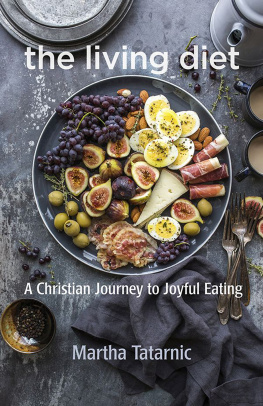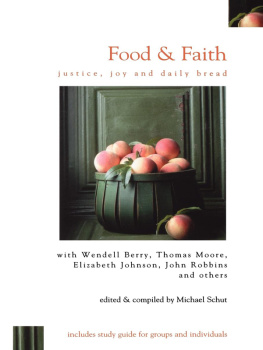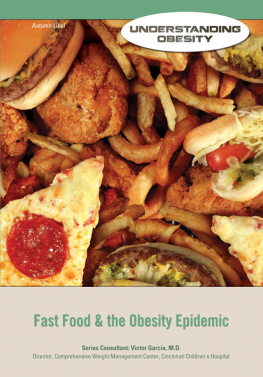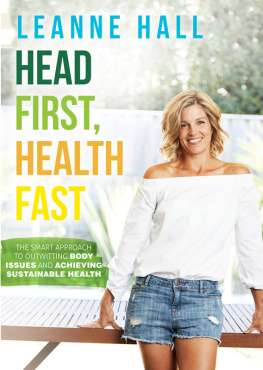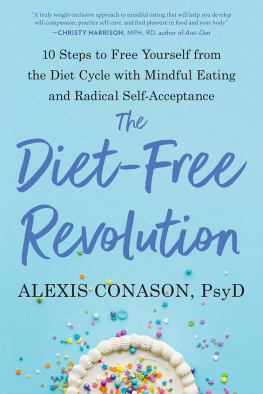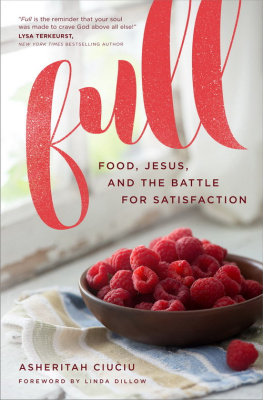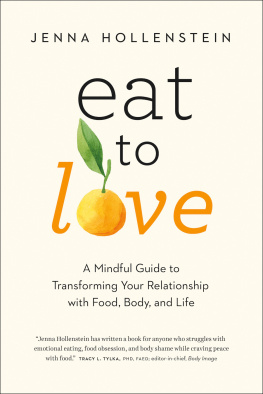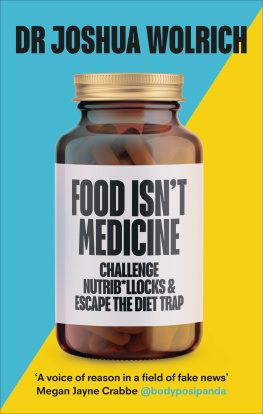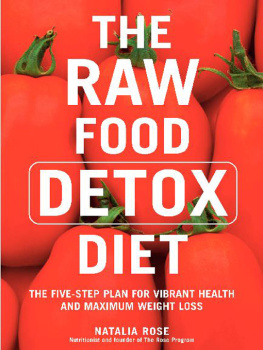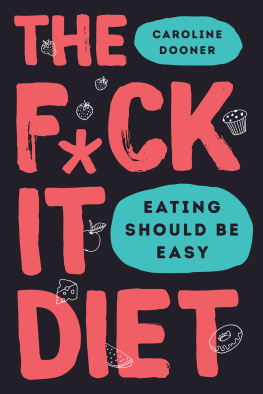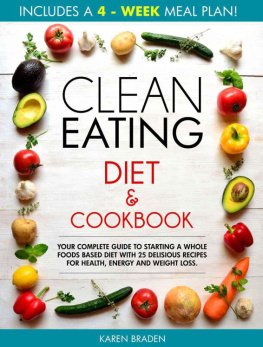the living diet
A Christian Journey to Joyful Eating
Martha Tatarnic

Dedicated to
St. David, Orillia
&
St. Georges, St. Catharines
Copyright 2019 by Martha Tatarnic
All rights reserved. No part of this book may be reproduced, stored in a retrieval system, or transmitted in any form or by any means, electronic or mechanical, including photocopying, recording, or otherwise, without the written permission of the publisher.
Unless otherwise noted, the Scripture quotations contained herein are from the New Revised Standard Version Bible, copyright 1989 by the Division of Christian Education of the National Council of Churches of Christ in the U.S.A. Used by permission. All rights reserved.
For a book study guide to accompany The Living Diet, go to www.marthatatarnic.ca.
Church Publishing
19 East 34th Street
New York, NY 10016
www.churchpublishing.org
Cover design by Paul Soupiset
Typeset by Rose Design
Library of Congress Cataloging-in-Publication Data
Names: Tatarnic, Martha, author.
Title: The living diet : a Christian journey to joyful eating / Martha Tatarnic.
Description: New York, NY : Church Publishing, [2019] | Includes bibliographic references.
Identifiers: LCCN 2018055701| ISBN 9781640651487 (pbk.) | ISBN 9781640651494 (ebk.)
Subjects: LCSH: FoodReligious aspectsChristianity. | NutritionReligious aspectsChristianity.
Classification: LCC BR115.N87 T38 2019 | DDC 248.4dc23
LC record available at https://lccn.loc.gov/2018055701
W e have an eating disorder. This struggle around how we feed and see our bodies plays out in a variety of ways, and contrary to the stereotypes, it is not confined to a particular age group or gender or to those who are especially obsessed with their appearance. Some of us desperately need to be thinner for health reasons. Most people believe, whether they really need to lose weight or not, that their lives would be better with fewer pounds. Some of us eat to protect or comfort ourselves. Many of us either eat mindlessly or obsessively, stuffing our faces on the run or counting every calorie and carb going into our mouths. Very young children, the middle-aged, seniors, and everyone in between, learn that indulging in food can be a means of filling a void, or that restricting food intake can be a way of asserting power. We are masters at finding and fretting over every perceived imperfection in our own bodies, even as we idolize the perfect bodies of the celebrities so glossily depicted in the media.
We are dissatisfied with our bodies, and our dissatisfaction turns into desperation, and our desperation turns into an obsession with food.
I struggled with an eating disorder. On the surface, I was trying to look the way I was taught to look by the culture around me. In a deeper sense, though, I was doing something much more damaging. I was embedding my deepest insecurities into the size of my waistline and believing that my feelings of alienation and despair could be forever lifted if I could just master my relationship with food and bring my body under control.
I was fed and coddled in this belief by a dense fog of media messages, learned eating patterns, cultural norms around dieting, and a nattering and nonstop verbal obsession around bodiesmy body, your body, our bodies, celebrity bodies, athletic bodies. All of which taught me that the disgust, frustration, fear, and disappointment I felt about the food I ate and the way my body looked were entirely normal.
Vast amounts of money are channeled into telling us that the secret to health and weight loss can be unlocked... if we purchase the right product or adopt the magic discipline. Yet collectively we are getting neither thinner nor happier. We have a big, desperate problem, as big as the excess pounds we carryboth real and imaginedand all of the junk food and junk diets and junk body messages that we keep devouring in between. It isnt just that we are receiving bad teaching about food and bodies. We are also receiving bad theology about food and bodies.
Theologytalk about Godgives us language for who we are and what our lives are for. Bad theology makes it commonplace to talk as if food choices are only about me, as if eating is a merely individual act, as if my own pleasure is the ultimate good, even as I am taught that my body is a problem to be solved, or worse, a war to be won.
I am a priest, which means that I regularly have the opportunity to preach to my flock. That being said, I try to guard against preachiness. At no point have I found that my self-righteous dispensing of advice has been an effective tool in facilitating transformation for others. I think of one particularly long stint on my high horse after successfully getting my baby daughter to sleep through the night after five sleepless months. I liberally preached to all of my new parent friends about my technique, assuring them that I had unlocked the secret to better sleep for them and their babies. None of them was helped by my expertise, and I was humbled two years later when I discovered that nothing that I had previously done worked with my second child.
This book, then, isnt written from any high horse. After decades of obsessing about food and my body, I did experience healing. But let me be clear. I have never successfully lost weight on a diet. When I have cravings, I usually indulge them. I dont understand anything about gluten and whether or not we should be consuming it. I eat cake, and I enjoy it. This is not a dieting book or even a spiritual companion to your own weight loss program. This is not another part of the wave of internet faith teachers who tell you that God wants you to look after your body as a way of honoring God. I am not going to teach you how to pray instead of eat chips.
What I do have to offer is a rich collection of storiessome of them mine, many of them from the wisdom handed down through the Judeo-Christian faith. I have experience in how these stories allowed me to go from obsessing about food and my body to embrace joyful eating. I was a church-going Christian the whole time my desperation to lose weight was at its peak. It never occurred to me that my faith might have something to say about how I was eating and what I thought about my body. At best, I thought the Christian faith was silent on the matter; at worst, I would have subscribed to a vague notion that God was disappointed with my body too.
I was wrong. Jesus doesnt show us the way to drop pounds or lose inches. He also, thankfully, doesnt point us to a God who wishes we were thinner. The gospel he proclaimed is, however, concerned with the healing and health of our bodies.
But Jesus insists on a different framework. Bad theology teaches that health and healing are just about me. Jesuss gospel teaches that we can learn to honor and appreciate our bodies and our lives when we understand that our bodies and lives are in relationship with other bodies and lives around us.
Amazingly, in upending the bad teaching we have been given about our relationship with food, we might find that we are not just spiritually healthier, but physically as well.
All of the diet plans we could ever need or want are already available to us, teaching us to count calories or eliminate food groups or sign up for the right plan or product. None of them seems to make us any less desperate about food or any less dissatisfied with our bodies. Its time to reclaim the original meaning and intent of the word diet. Diet is a word which comes from the Latin word

